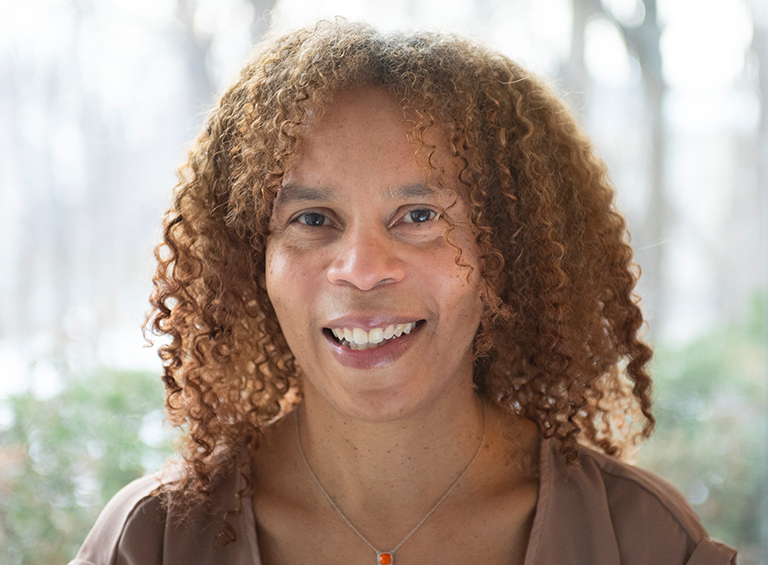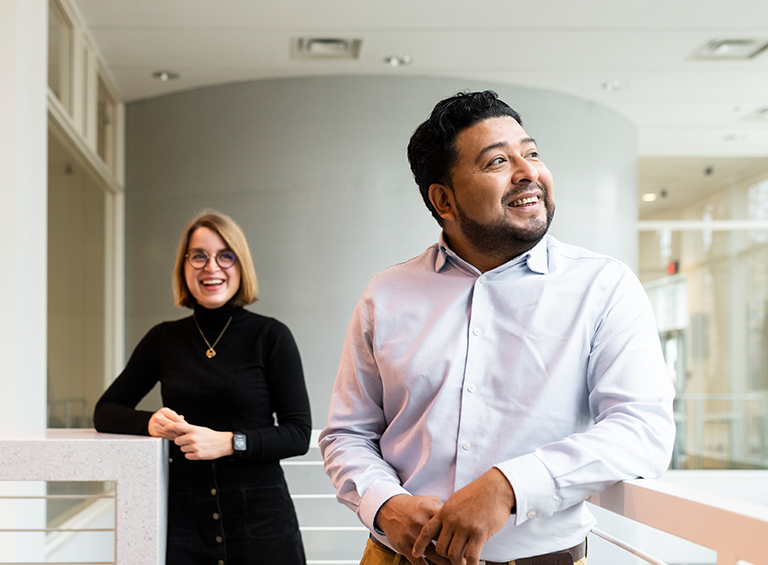EDI day by day: simple behaviours to adopt

“Building an open and tolerant community that includes all types of diversity!”
.
HEC Montréal now holds a policy on equity, diversity and inclusion (EDI). This acknowledges our sincere willingness to offer you a campus environment which is welcoming and respectful of people’s differences. It is up to you to embody the policy’s commitments as you engage yourself in a relationship with others. But do you know how to do this?

Act for change
EDI matters to our whole community. In the classroom, the cafeteria or the library: wherever you may be, be an active witness, bring in solutions, generate ideas.
- Pay attention to the people around you, but also to the actions taken and the words being exchanged.
- Don’t hesitate to intervene to improve these interactions.
- If need be, express your opinion and offer solutions in a constructive manner.

“I witnessed racist comments in one of my classes. This was a difficult situation, involving the whole group. I reached out to EDI specialists to obtain their support to make sure my intervention was appropriate. This opened the door to greater awareness, which changed everything.”

Show your respect
On campus, you interact with people of all ages, genders, backgrounds and conditions. Please pay attention! Many characteristics of diversity are invisible. This is the case for beliefs, membership in a social group, mental health status, etc.
In each of these interactions, you need to be respectful. This includes reaching out to people with consideration and taking their feelings into account. You may, for example:
- Show solidarity with members of a distressed community.
- Be sure to give everyone present the chance to speak during a conversation.
- Avoid generalizing about a group (e.g., In Quebec, everyone is… I went on holiday to Bolivia, nobody there is… Neurodivergent people are really…).

“I act with kindness and give the same consideration to everyone. Focusing on warm, relationships is a concrete way to implement what policies and programs suggest we do.”

Be open-minded
Groups are never completely uniform. Some people may have different needs from yours due to, for example, their health status, cultural practices, or family situation. Try to be sensitive to these needs. If you have any doubts, feel free to open a conversation with them.
Here are some of the things you can do:
- When working as a team, establish a dialogue and reach an agreement on ways to work together as to accommodate members: an overwhelmed parent, a caregiver, a student respecting a religious custom, etc.
- Welcome with kindness and without any judgment a person who is trans, wears a hijab or is neurodiverse.
- Avoid assessing people’s skills based on their physical appearance alone.

“I am part of the EDI student round table with Isabelle Roberge-Maltais. We share the same concern: we would like more attention to be paid to students who are parents. We really need to take them into account, for example when developing educational projects, social activities, get-togethers.”

Take the time to reflect
Regularly question yourself about your perceptions and preconceived ideas. Don’t hesitate to question the status quo and things that may be taken for granted and do so in a constructive and positive manner.
You may, for example:
- Take advantage of being in an academic setting to learn about key EDI issues, such as unconscious bias, microaggressions or discrimination.
- Examine existing practices, processes and ask yourself whether they adhere to the principles of equity and inclusion.
- Take the time to observe people around you, try to understand their expectations and put yourself in their shoes.

“On a day-to-day basis, I naturally adopt attitudes that promote dialogue, respect and openness towards others. But we all have prejudices! In my work, I therefore must remain on my guard, to avoid making decisions coloured by preconceived ideas.”
.
